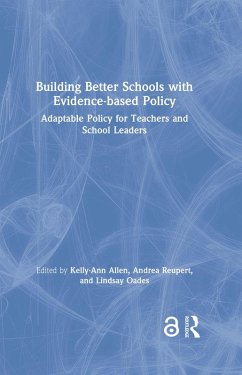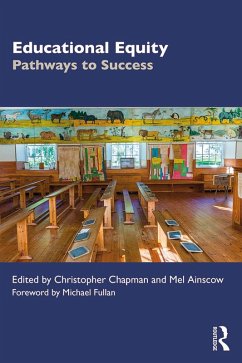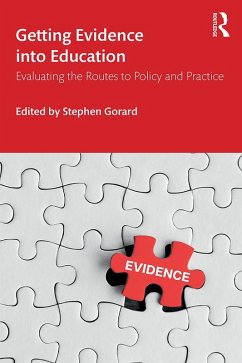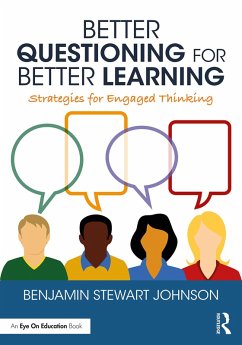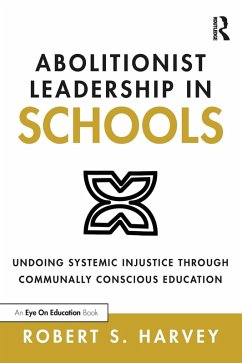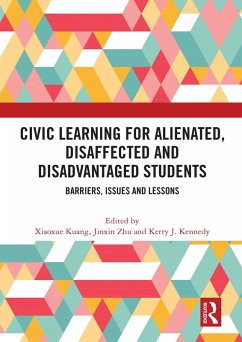
Making Schools Better for Disadvantaged Students (eBook, PDF)
The International Implications of Evidence on Effective School Funding
Versandkostenfrei!
Sofort per Download lieferbar
37,95 €
inkl. MwSt.
Weitere Ausgaben:

PAYBACK Punkte
19 °P sammeln!
*2023 BERA Educational Research Book of the Year*Around the world, governments, charities, and other bodies are concerned with improving education, especially for the lowest-attaining and most disadvantaged students. Making Schools Better for Disadvantaged Students presents detailed research into how poverty affects student segregation and underachievement in schools. It contains the first ever large-scale evaluation of how funding can best be used to lower the poverty attainment gap for disadvantaged students.Drawing on a wealth of empirical research from England, India, and Pakistan as well ...
*2023 BERA Educational Research Book of the Year*
Around the world, governments, charities, and other bodies are concerned with improving education, especially for the lowest-attaining and most disadvantaged students. Making Schools Better for Disadvantaged Students presents detailed research into how poverty affects student segregation and underachievement in schools. It contains the first ever large-scale evaluation of how funding can best be used to lower the poverty attainment gap for disadvantaged students.
Drawing on a wealth of empirical research from England, India, and Pakistan as well as worldwide reviews of relevant studies, the book presents high-quality evidence on the impact of funding policy initiatives, such as the Pupil Premium funding in England, and the many variations of similar schemes worldwide. It analyses education measures which have been put in place and discusses ways in which these can be used efficiently and fairly to allocate funding to students who are persistently at risk of underachievement. The book is unique in synthesising many forms of evidence from around the world and finding a definition of educational disadvantage that can be used fairly across different contexts.
Offering significant implications for ways to improve educational outcomes for disadvantaged students, the book will be essential reading for students of education policy, sociology of education and educational practices, and all researchers, school leaders, and policy-makers working in this area.
Around the world, governments, charities, and other bodies are concerned with improving education, especially for the lowest-attaining and most disadvantaged students. Making Schools Better for Disadvantaged Students presents detailed research into how poverty affects student segregation and underachievement in schools. It contains the first ever large-scale evaluation of how funding can best be used to lower the poverty attainment gap for disadvantaged students.
Drawing on a wealth of empirical research from England, India, and Pakistan as well as worldwide reviews of relevant studies, the book presents high-quality evidence on the impact of funding policy initiatives, such as the Pupil Premium funding in England, and the many variations of similar schemes worldwide. It analyses education measures which have been put in place and discusses ways in which these can be used efficiently and fairly to allocate funding to students who are persistently at risk of underachievement. The book is unique in synthesising many forms of evidence from around the world and finding a definition of educational disadvantage that can be used fairly across different contexts.
Offering significant implications for ways to improve educational outcomes for disadvantaged students, the book will be essential reading for students of education policy, sociology of education and educational practices, and all researchers, school leaders, and policy-makers working in this area.
Dieser Download kann aus rechtlichen Gründen nur mit Rechnungsadresse in A, B, BG, CY, CZ, D, DK, EW, E, FIN, F, GR, HR, H, IRL, I, LT, L, LR, M, NL, PL, P, R, S, SLO, SK ausgeliefert werden.







